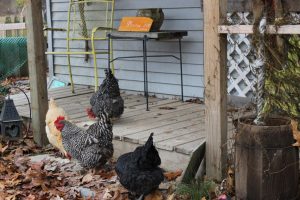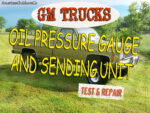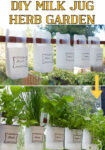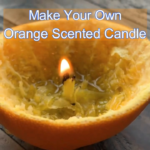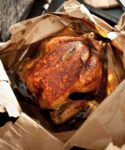A few quick helps for those folks experiencing their first winter with chickens and a quick refresher for the veterans as temperatures drop. Caring for your chickens during winter isn’t intended as an exhaustive list and your location and situation may be unique, so consider this a general guide.
- Late fall is a common time for chickens to molt. Don’t freak if you are finding mounds of feathers in your coop. They aren’t having knock down drag out fights while you sleep. It is normal for a chicken to experience their first molting period around a year and a half. Their feathers will return in as little as three weeks or as much as a few months.
- Do not insulate your chicken coop. The natural tendency is we want to ensure our chickens are warm, but sealing a chicken coop is a recipe for a homemade gas chamber. Air circulation in their structure is vital to their winter health. Chickens expel moisture in their breath; a group of hens in an enclosed area will increase moisture levels in the air, which can freeze during sub zero temperatures and can lead to frostbite. Condensation on henhouse windows is a sign that there is too much humidity. Air movement is also vital when the droppings “pile up”. Cleaning their coop isn’t always practical or even possible during the dead of winter. Chicken feces produces ammonia, which is of course harmful to your birds and can irritate their lungs. Our coop happens to be an old garden shed, with a few cracks in the walls and gaps between the boards. It might not be inviting for you or me, but it allows a continual flow of fresh air inside.
- Have at least one heated water bowl available to your chickens. We keep one both outside and inside their coop. Chickens will need water regardless of temperature and activity, but the frozen stuff does them no good. The larger the bowl the better.
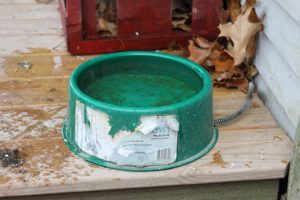
- Heat lamps are tempting when you are looking out your kitchen window during a January blizzard, imagining yourself frozen to a roosting pole, but they aren’t always the best thing for your birds. Yes, they may be needed during the bitterest of nights, but most of the time they will do more harm than good. Chickens, like most any other creature do a pretty good job of adapting to the climate, but a heat lamp will inhibit a chicken’s ability to tolerate the cold more than help and once they begin to depend on it, they will tend to remain indoors. The risk to their health will also increase if the power should ever fail and the lamp goes out.
- During severe and/or extended freezing temperatures, chickens can experience frostbite along their combs and waddles (the red growths on their head and below their chins). A dab of vaseline or even something like coconut oil rubbed along the exterior can go a long way to preventing frostbite in your flock. They typically will stand on one foot when outside during the winter as a means of staying warm. This is typical and doesn’t necessarily mean they are in distress, however you can also apply vaseline to the leg and talon. It isn’t fool proof and you will still need to monitor your birds for signs of frostbite ie discoloration, swelling, bleeding.
- It is true that Chickens do get cabin fever. Boredom will result from the limitations of snow, frozen ground, and a general lack of exercise. You may even see increased signs of aggressiveness and fighting. A few things in the yard or inside their coop, such as a chicken swing, or a walmart bag with some greens or vegetables hung from the ceiling by a string (like a pinata) will do a lot to break up the monotony. It gives them something to do besides peck each other on the head.
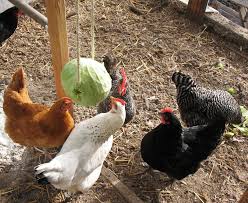
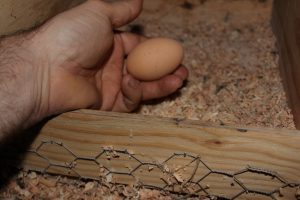 Gather eggs as soon as you possible can. A frozen egg can crack and once it is indoors and thawed can allow bacteria to grow inside of the egg. If you have any doubts about an egg’s condition, throw it out.
Gather eggs as soon as you possible can. A frozen egg can crack and once it is indoors and thawed can allow bacteria to grow inside of the egg. If you have any doubts about an egg’s condition, throw it out.- Keep their bedding fresh and deep and dry. While it is okay for a chicken coop to be a bit “drafty” it is key that it remain dry during winter. This means anything from roof leaks, to standing water on the floor to soiled bedding. Your hens and roosters should not have any exterior contact with moisture inside their shelters.

